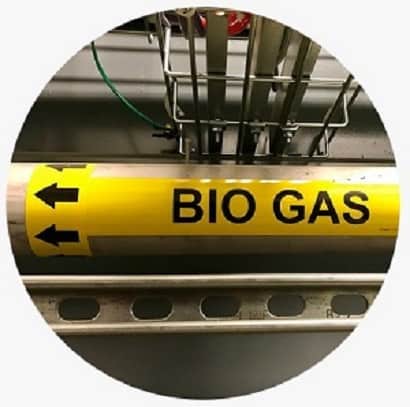Definitions
The following definitions have been developed in collaboration between the American Biogas Council and the American Gas Association or the Coalition for Renewable Natural Gas.The following definitions have been developed in collaboration between the American Biogas Council and Coalition for Renewable Natural Gas to bring clarity to those working in the North American biogas and RNG industries.
Biogas: a mixture of carbon dioxide (CO2) and hydrocarbons, primarily methane (CH4) gas, from the biological decomposition of organic materials.
Syngas: a gas mixture composed primarily of hydrogen (H2) and carbon monoxide (CO) along with hydrocarbons from the thermochemical decomposition of organic or inorganic materials.
Conditioned Biogas: medium-BTU biogas that is stripped of some trace contaminants and water, but maintains the relative mix of carbon dioxide (CO2) and methane (CH4).
Biomethane: biogas-derived, high-BTU gas that is predominately methane after the biogas is upgraded to remove most of the contaminants and a majority of the carbon dioxide (CO2) and nitrogen (N2) found in biogas.
Renewable Liquefied Natural Gas (R-LNG): RNG that is converted to liquid form, often for use as a transportation fuel.
Renewable Compressed Natural Gas (R-CNG): RNG that is compressed to a high pressure, often for use as a transportation fuel.

The following definition was developed in collaboration between the American Biogas Council and the American Gas Association:
Renewable Natural Gas (RNG): Pipeline compatible gaseous fuel derived from biogenic or other renewable sources that has lower lifecycle CO2e emissions than geological natural gas.
